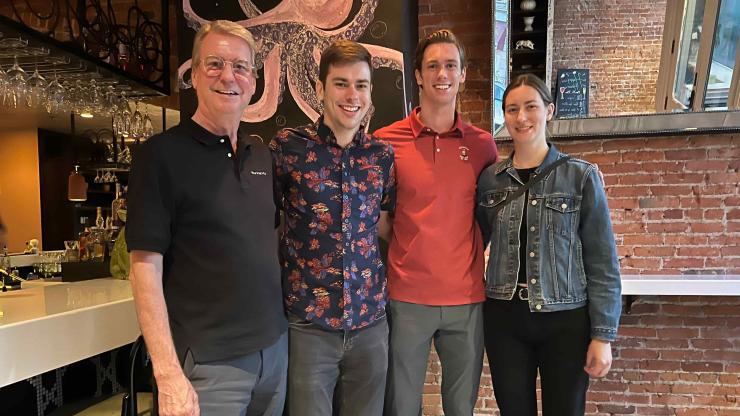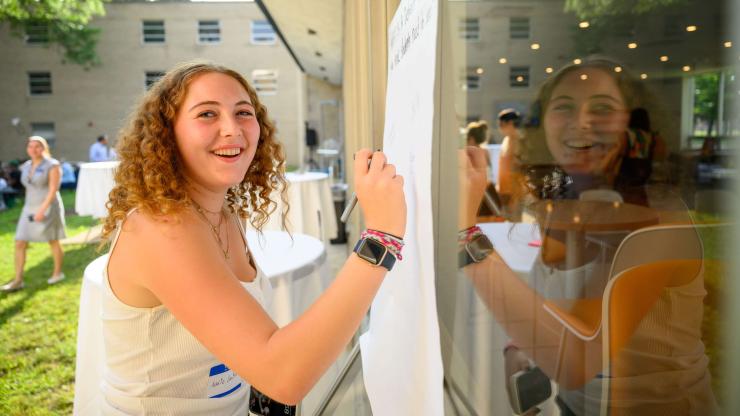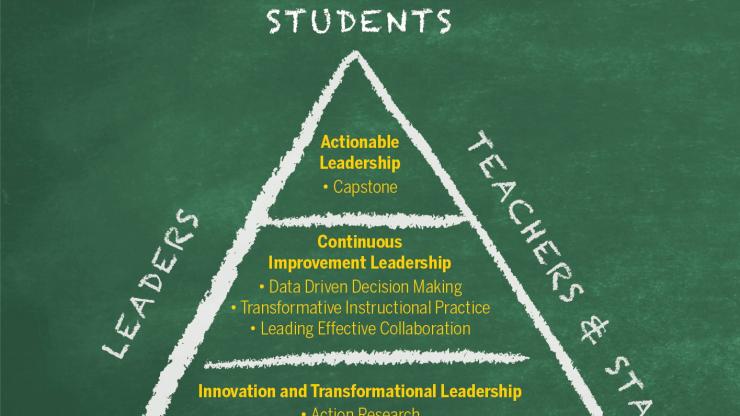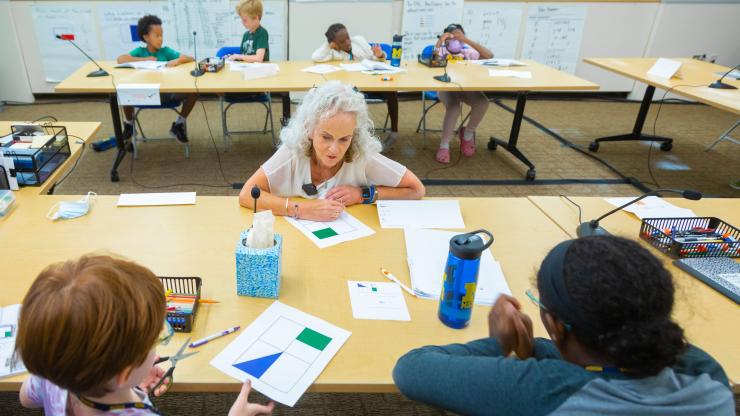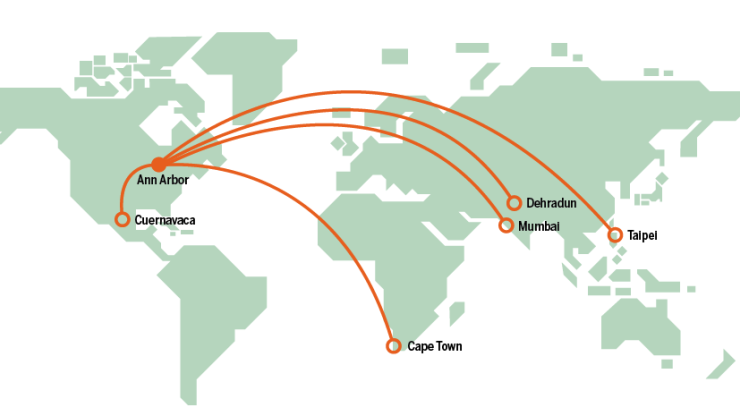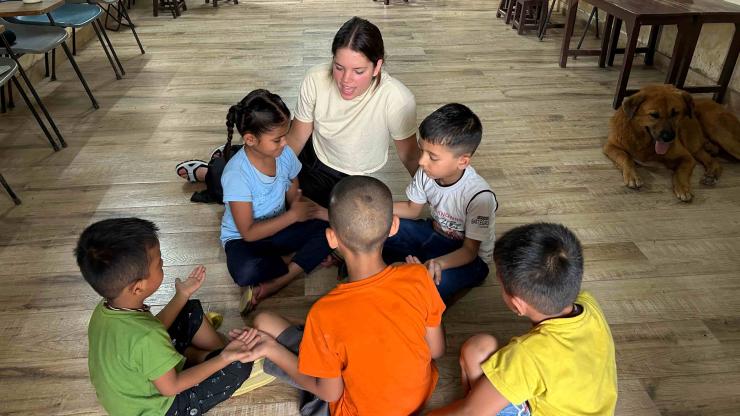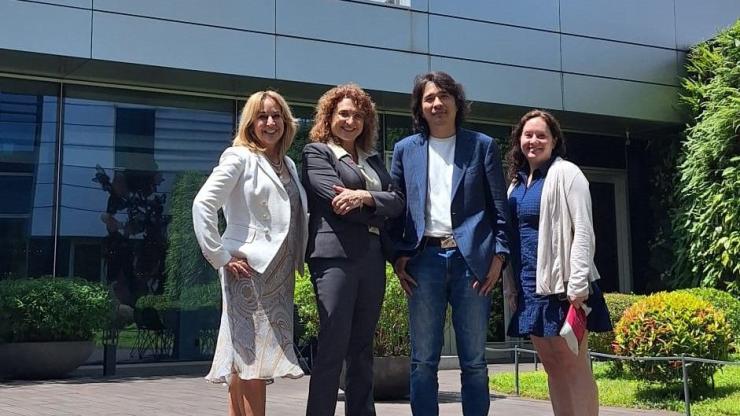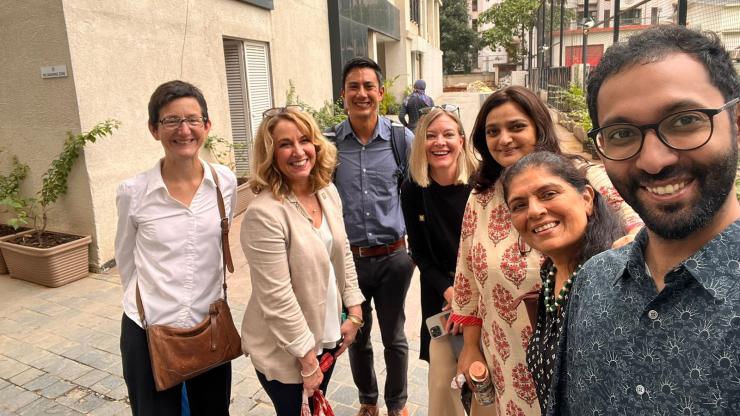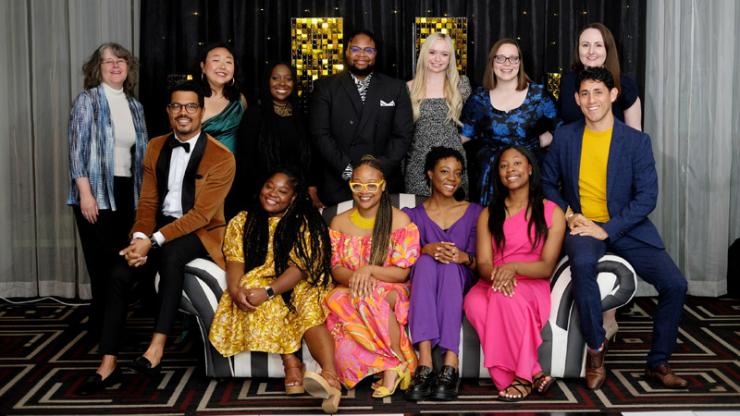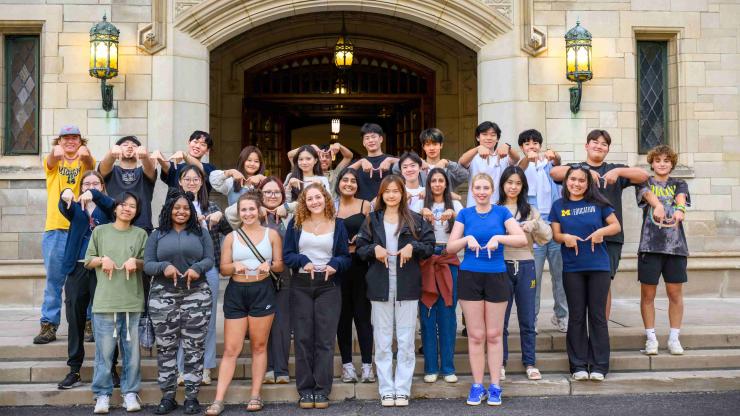The English Language Development Program Studies Abroad in Mexico
For three weeks, Marsal School students lived and learned in Cuernavaca, Mexico
This article is part of a series, Making Connections Far and Away, Bringing Lessons Home
In May, Susan Atkins, lead faculty member for the Marsal School's English Language Development (ELD) program, led students on a three-week trip to Cuernavaca, Mexico. There, 13 undergraduate students participated in Spanish language immersion, homestays with local families, cultural activities, and field trips, while completing U-M coursework toward earning Michigan's ESL endorsement.
The inaugural trip, which was made possible by a Faculty-Led Education Abroad Program Grant from the University of Michigan's Global Engagement Team, encouragement from Dean Moje, and a relationship Atkins had established with Azteca Total Immersion Center (ATIC), prompted new interest in the ELD certification among undergraduates. Riley Nieboer, who is majoring in elementary education, had planned to minor in Spanish but switched her course of study to pursue the ELD certification and travel to Mexico instead. In the future, she hopes to teach in a Spanish-speaking country. "This was the perfect opportunity to equip me to reach that goal," she says.
In the morning, students took two hours of Spanish language study, followed by class with Atkins. "This program is part of the certification that students do to get an additional endorsement in English as a Second Language for the state of Michigan," says Atkins. "These students do the ELD coursework in preparation to receive and teach students with varied levels of English proficiency. Over and over again, the teaching interns on the trip expressed how they could now understand and relate to what it's like to be in an environment where one doesn't speak the dominant language. Based on their own language learning experience, they kept reflecting on how much empathy was required, how much patience, and the importance of wait time."
The cohort's days were organized around sobremesa ("at the table"), a midday meal that Atkins says is important to Mexican family culture. At 2 p.m., students went to their respective homestay families for sobremesa to share food and spend time together for several hours.
"I got to know my family really well just from the time we would spend sitting and talking together after lunch," says Nieboer. "I feel more confident now going into situations with native speakers because I've had the experience of living with a family where our only communication was in Spanish."
While in Cuernavaca, the cohort also visited a local elementary and secondary school. Nieboer was struck by the teachers' use of call and response—a technique she hasn't seen employed very often in U.S. classrooms. Debriefing afterward with her fellow teaching interns, she observed how engaged all the students seemed to be because of their collective participation.
Another teaching intern told Atkins she was struck by the "profound connectedness" of Mexican families. This will shape how she thinks about the students and families she eventually welcomes into her own classroom. "Now she has a deeper understanding of what it means for a family to leave Mexico, and how that might impact the way they engage in a school system where perhaps they don't feel comfortable or invited. When I heard the intern explaining that to me, I felt such a sense of satisfaction. Besides being in the country and living with families, there really is no other way I could have taught that."
From a recruitment standpoint, Atkins is thrilled to see how the lure of traveling abroad has bolstered interest in the ELD program. "We took 13 students, which means we have a whole new group of interns who will now have this endorsement and be prepared to teach in this way."
In a final reflection assignment, students shared observations that will stay with them long after they return home.
Anticipating a career in teaching, one intern wrote: "I am incredibly grateful to have had the opportunity to study in Mexico and know this experience will continue to offer me new insights as a teacher in the future. I now envision my work with a different lens, and [this trip] has made me so excited to start my career."
On visiting schools in Mexico, another intern said that "students are often free to move around the classroom when needed. Discipline wasn't needed as students were still actively engaged. I also noticed that family lunch at home is prioritized, resulting in school days lasting around 4-5 hours per day."
Remarking on the experience of learning Spanish and living in a Spanish-speaking community, an intern wrote, "I can now empathize with newcomer students and their frustration to make friends because I have experienced [that frustration] myself. It takes so much patience from both sides to have even a simple conversation. It can be hard to have that much patience and find someone with that patience. It is simply easier to communicate with others and build that bond with people who you can communicate effectively with. I can understand why a student may not speak or may start crying when being spoken to because it is so overwhelming to not understand what the other person is saying."
Reflecting on the experience of learning to communicate across cultures and through two languages, for undergraduate student Rosie Sanchez the program was best summed up in verse:
Mexicana hermosa,
Gracias por todo,
For all that you give me.
For the beautiful words
That my tongue speaks freely.
For the blood in my veins
That I share with your country.
Gracias por la tierra
That I lay on peacefully.
Sufriste mucho,
Pero you still stand tall.
Gracias,
For being the reminder of my own strength.





